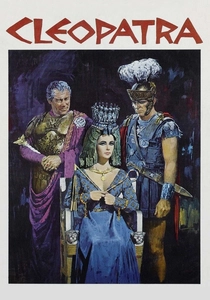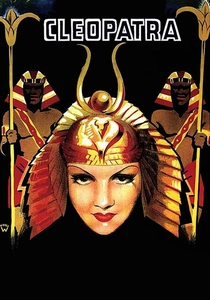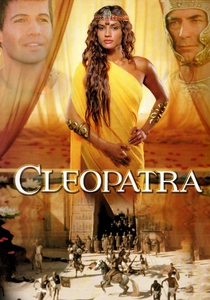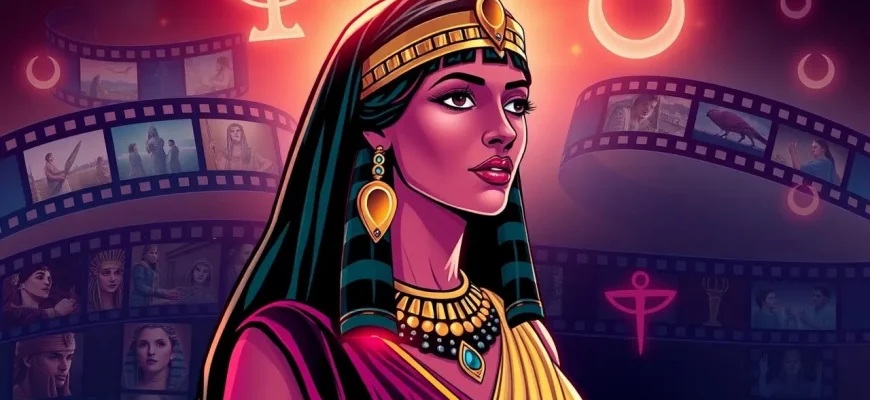Cleopatra VII, the last pharaoh of Ancient Egypt, has captivated audiences for centuries with her intelligence, charisma, and dramatic life story. This curated collection of films delves into various interpretations of her life, offering viewers a rich tapestry of historical drama, romance, and political intrigue. Each film brings a unique perspective on Cleopatra's legacy, making this selection invaluable for those fascinated by history, cinema, or the enigmatic queen herself.

Cleopatra (1963)
Description: This epic film, directed by Joseph L. Mankiewicz, is perhaps the most iconic portrayal of Cleopatra, with Elizabeth Taylor delivering a mesmerizing performance. It captures the grandeur of Cleopatra's life, her relationships with Julius Caesar and Mark Antony, and the political machinations of her time.
Fact: The film was one of the most expensive ever made at the time, with costs ballooning to over $44 million. It also famously led to the real-life romance between Taylor and her co-star Richard Burton.
 Watch Now
Watch Now

Cleopatra (1934)
Description: Claudette Colbert stars in this earlier adaptation of Cleopatra's story, focusing on her political cunning and romantic entanglements. This film offers a more theatrical and less historically accurate portrayal but remains a classic in its own right.
Fact: This version was nominated for five Academy Awards, including Best Picture, and won for Best Cinematography.
 30 Days Free
30 Days Free

Cleopatra (1999)
Description: This made-for-TV movie stars Leonor Varela as Cleopatra, offering a more modern take on her life, focusing on her intelligence and strategic mind rather than just her romantic relationships.
Fact: The film was part of ABC's "Cleopatra" miniseries and was praised for its historical accuracy and the portrayal of Cleopatra as a strong leader.
 30 Days Free
30 Days Free

Cleopatra (1917)
Description: One of the earliest film adaptations of Cleopatra's life, this silent film features Theda Bara in the titular role, emphasizing Cleopatra's exotic allure and seductive power.
Fact: The film was considered lost for many years until fragments were rediscovered, showcasing the early cinematic fascination with Cleopatra.
 30 Days Free
30 Days Free

Cleopatra (1970)
Description: A lesser-known adaptation, this film focuses on Cleopatra's later years, her relationship with Mark Antony, and the fall of her empire. It provides a different angle on her life, emphasizing her political struggles.
Fact: This version was produced by the Soviet Union and offers a unique perspective on Cleopatra's story.
 30 Days Free
30 Days Free

Cleopatra (1912)
Description: Another silent film, this one stars Helen Gardner, who also produced the film, making it one of the earliest examples of a woman taking on a significant role behind the camera in Hollywood.
Fact: This film was groundbreaking for its time, not only for its subject matter but also for its production values and the role of women in film production.
 30 Days Free
30 Days Free

Cleopatra (1928)
Description: Starring Jacqueline Logan, this silent film explores Cleopatra's life with a focus on her love affairs and the tragic end of her reign, offering a melodramatic interpretation of her story.
Fact: The film was one of the last silent films to be made before the advent of talkies, marking the end of an era in cinema.
 30 Days Free
30 Days Free

Cleopatra (1989)
Description: A British television film, this version stars Amanda Barrie and provides a condensed yet engaging look at Cleopatra's life, focusing on her political acumen and the challenges she faced.
Fact: This adaptation was part of the "Sunday Night Theatre" series, showcasing the UK's interest in historical dramas.
 30 Days Free
30 Days Free

Cleopatra (1953)
Description: This film, starring Vivien Leigh, focuses on Cleopatra's relationship with Julius Caesar, offering a more intimate portrayal of her life and her political maneuvering.
Fact: Leigh's performance was critically acclaimed, although the film itself was not as successful as other adaptations.
 30 Days Free
30 Days Free

Cleopatra (1945)
Description: A lesser-known adaptation, this film stars Vivien Leigh in a dual role, playing both Cleopatra and her sister Arsinoe, exploring the internal family dynamics and political intrigue.
Fact: This version was produced during World War II, reflecting the era's interest in historical figures who navigated complex political landscapes.
 30 Days Free
30 Days Free









